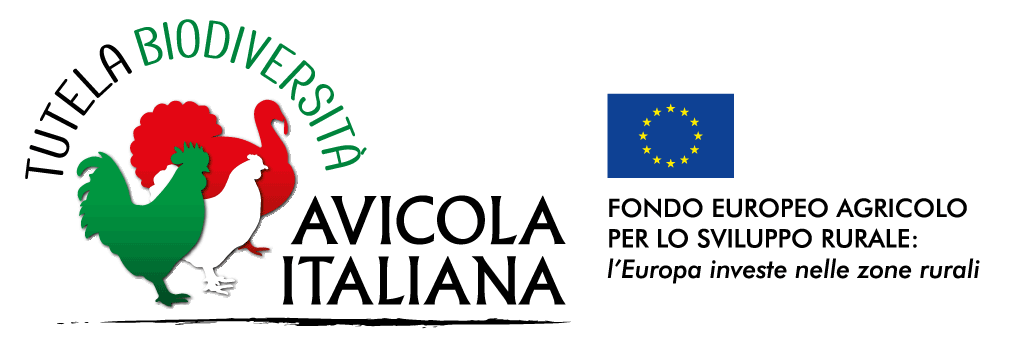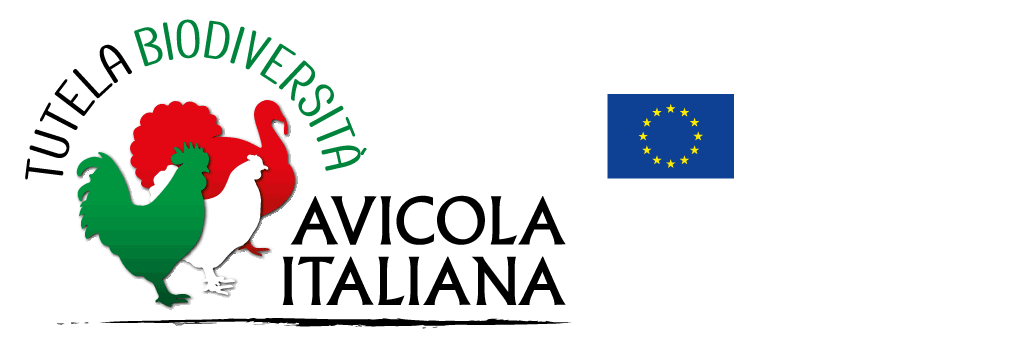Polverara
Synonyms or local names: Schiata or s-ciàta
Geographic origin: Veneto (Padua)
Geographic distribution: Veneto, Friuli-Venezia Giulia
Estimated total population size: 1093 (Castillo et al., 2021)
Extinction risk status (FAO, 1998): Not at risk
Any other specific information: Presence of a tuft, less developed than in the Padovana breed
Historical origin of the breed
Historical breed. The origin of the Polverara breed seems to date back to the XIV century, when the marquise Giovanni Dondi Dell’Orologio came back from a journey in Poland with chickens with an unusual appearance. Over time, he cross-breeded them, producing new chickens which showed good adaptation to the territory and the Polverara birds were among them. This breed is of medium/light size, with elegant bearing. The meat is dark, endowed with sapidity and firmness, suitable for many culinary preparations, also coming from ancient popular traditions, such as the stuffed hen (gallina con il pien). The Polverara is suitable for the valorization of the typical productions of the Veneto region. It is included in the National Plan of Biodiversity in Agriculture and in the Atlas of Traditional Agri-food Products (Atlante dei Prodotti Agroalimentari Tradizionali) of the Veneto region.
Qualitative morphological traits
Feather morphology: Normal
Feather distribution: Normal
Plumage structure: Soft
Plumage colours: White, Black
Colour features: Single-colour, with sexual dimorphism
Colour pattern:
White: Brilliant white plumage, white down
Black: Brilliant intense black, with strong green lustre, black down
Chick plumage colour: Straw yellow down with grey nuances
Comb type: Absent, replaced in the male by small V-shaped hornets, that are barely visible in the female
Ear-lobe colour: Pure white
Beak colour: Pink yellow in the White; dark horn with black stripes in the Black
Iris colour: Red-orange to brown
Muffs: Present
Beard: Present
Tuft: Present, upright on the head and leaning forward
Skin colour: White
Shank colour: Willow green in the White; slate with greenish shades in the Black
Shank feathering: Free from feathers
Other specific and distinct visible traits: Rudimentary red wattles, in part covered by the beard
Pictures from the archives of Prof. Gabriele Baldan and Prof. Massimo De Marchi.
Quantitative morphological traits

Genetic traits
Characterisation of the breed with Single Nucleotide Polymorphisms (SNPs)
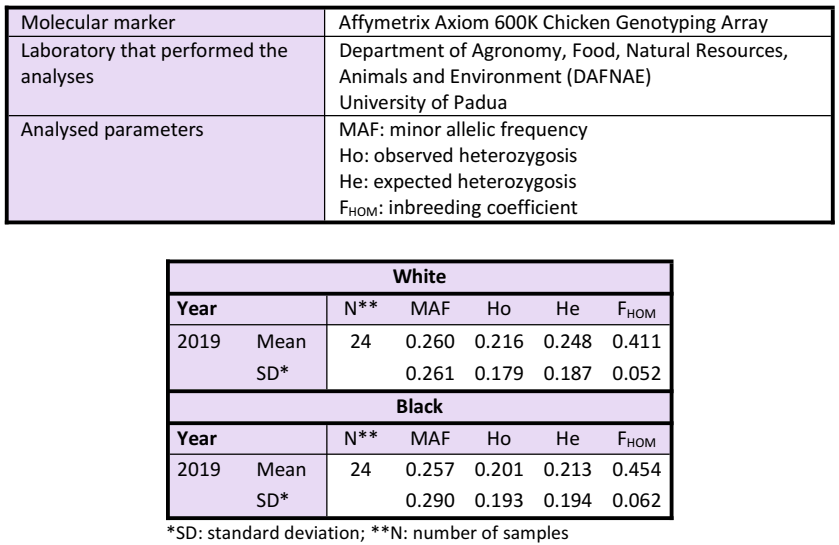
Characterisation of nucleus populations with microsatellites
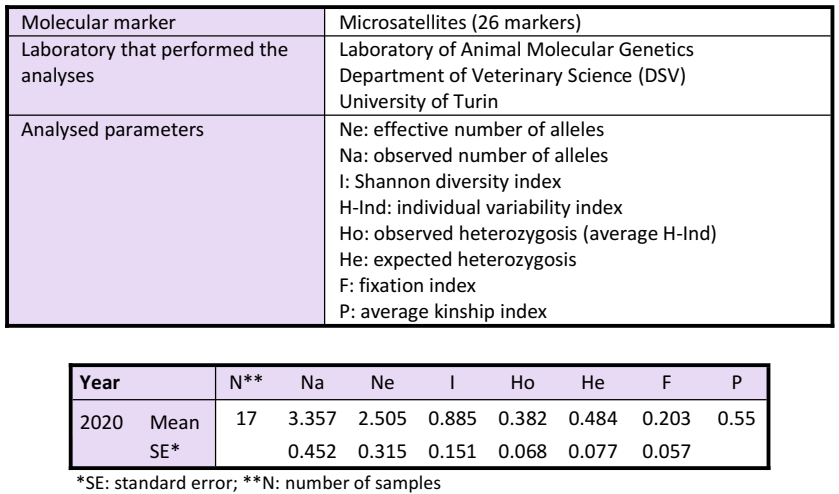
Reproductive and productive quantitative traits
Oviposition, brooding and incubation data
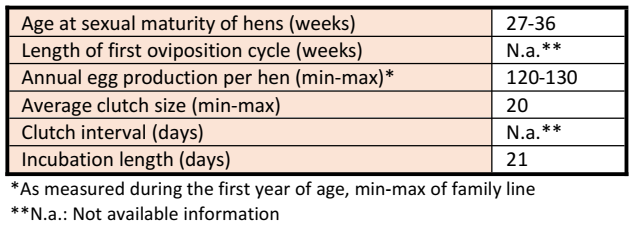
Egg-quality traits
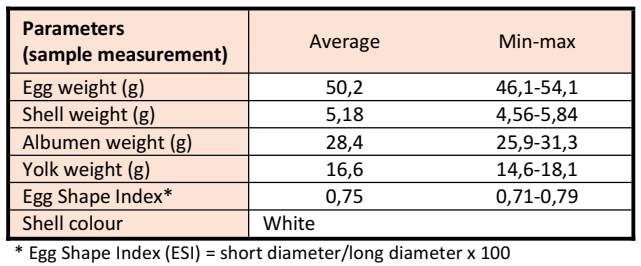
Reproductive traits
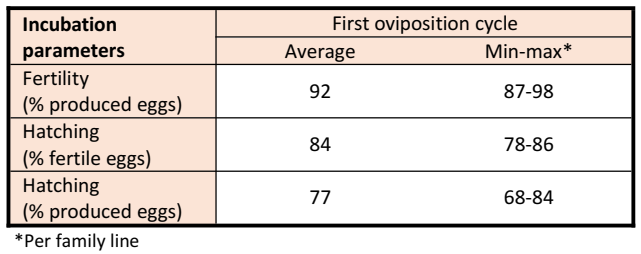
Rearing traits
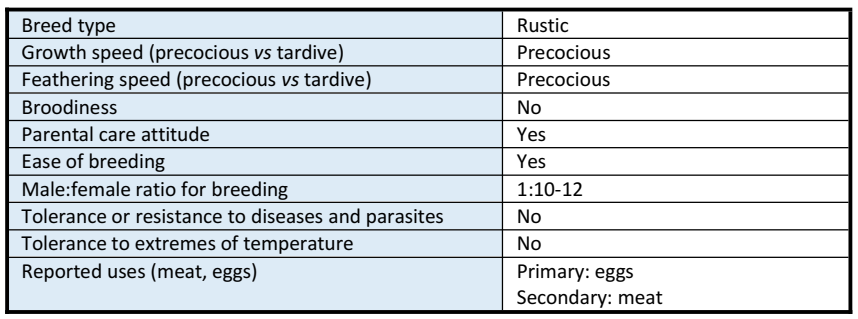
The presented data were registered in the nucleus populations of white and black Polverara conserved at the “Sasse Rami” Experimental Farm, in Ceregnano (Rovigo). The data are presented by breed and, for some traits, by colour.
Technical data sheet
(The layout of the data sheet is ready for the booklet format. Print on both sides of paper, selecting “flip on short edge”.)
Germplasm collection
The breed is conserved in our Cryobank with 4 semen doses from 1 donor.
Latest update: August 22nd, 2024
